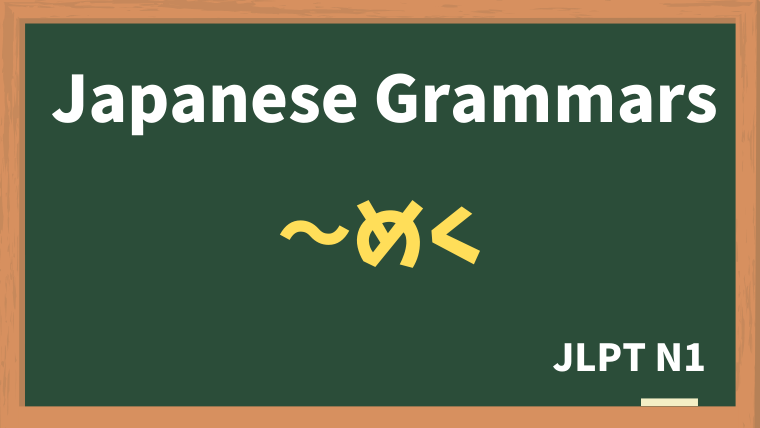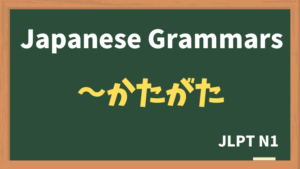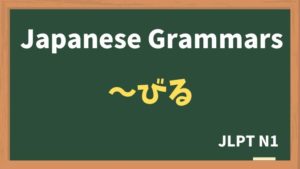
Explanation:〜めく
fa-check-circleMeaning
"〜のような感じがする"
Used to give the sense that something has the qualities or atmosphere of something else. It often indicates that something "seems like" or "has the feel of" a particular state or condition.
fa-check-circleForm
N + めく
よく使うNoun
→春、冗談、皮肉、説教、秘密、謎
fa-check-circlePoints
- Resemblance or Feeling: "〜めく" implies that something appears to have the qualities, characteristics, or atmosphere of the word it follows. It gives a sense of "seeming like" or "taking on the appearance of."
- Commonly Used with Seasons or States: It's often used with seasonal or emotional terms, like spring or mystery, to convey that something feels like or resembles that time or state.
- Literary and Formal Tone: While not extremely formal, it has a poetic or literary quality, making it less common in casual speech but frequently used in writing or descriptive language.
fa-check-circleJLPT Level
N1
fa-check-circleNote
・使えるNounは少ないです。
Sample sentenes
だんだん春めいて来ましたね。
Spring is gradually starting to feel more like spring, isn't it?
彼はどこか謎めいた雰囲気があるよね。普段何しているのか全然わからないし。
He has a somewhat mysterious aura, doesn't he? We don't know at all what he does normally.
彼女に皮肉めいたことを言われて、腹が立った。
I was annoyed by the sarcastic comments made by her.
僕の上司はよく冗談めいた言い方で怖いことを言う。
My boss often says frightening things in a joking manner.
Vocabulary
| Japanese |
English | |
| 雰囲気 | ふんいき | atmosphere |
| 皮肉 | ひにく | irony |







